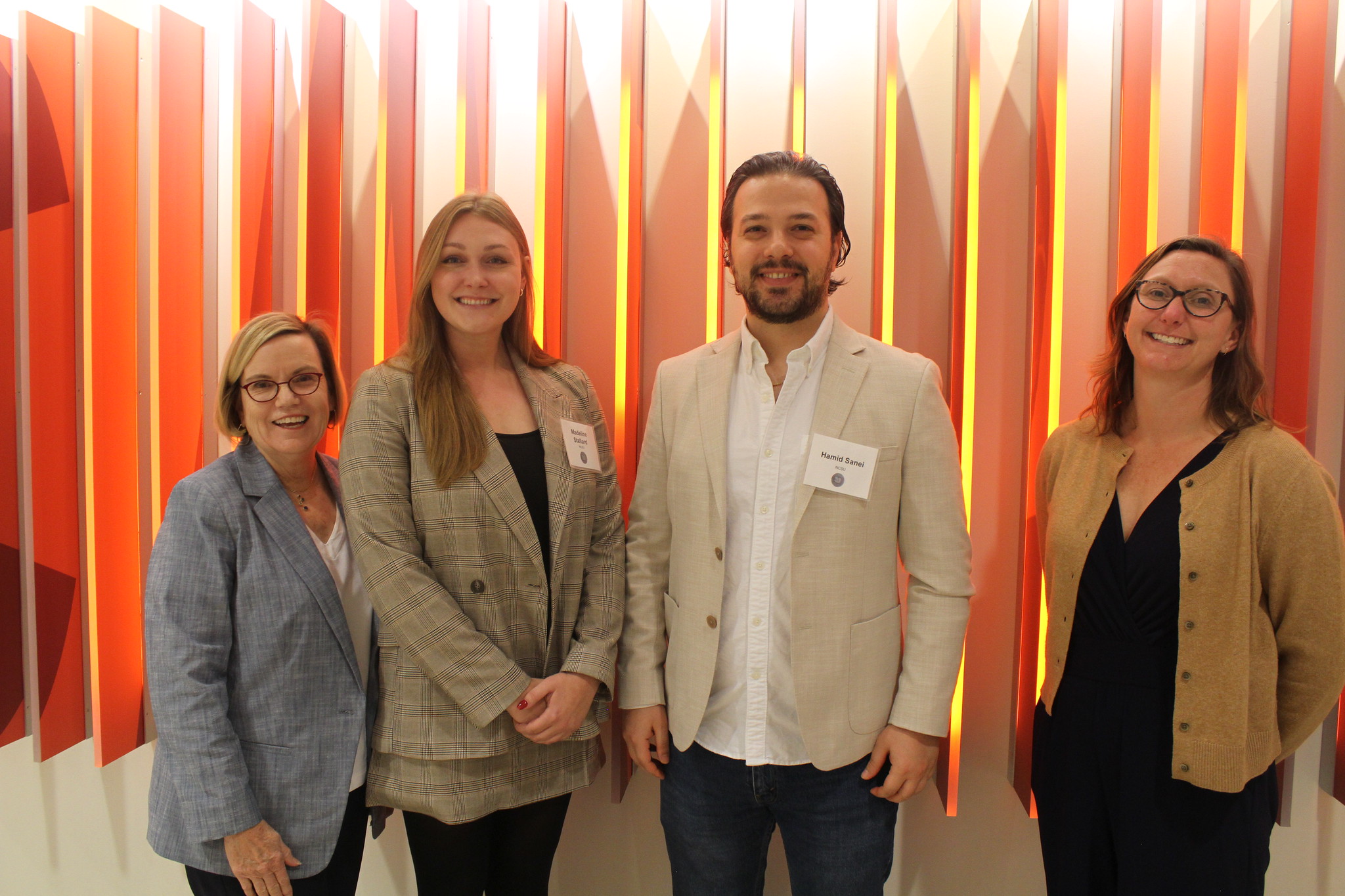STEM Education Researchers Gather at National Summit to Explore Next Big Ideas, Questions in STEM Education

When University of Cincinnati faculty were surveyed in 2011 and asked what they thought STEM (science, technology, engineering and mathematics) was, only 57% could identify all parts of the acronym, and 27.5% had no idea what it stood for. Today, most people know what the acronym STEM means but still struggle with articulating a clear or unified definition of STEM.
On Thursday, Oct. 10, STEM researchers, policymakers and educators were given a forum to come together to discuss the definitions and implications of STEM at the National STEM Education Research Summit held at the NC State College of Education’s Friday Institute for Educational Innovation in Raleigh, N.C. Attendees represented organizations from around the country, including Purdue University, California State Polytechnic University, Rutgers University and Texas Tech University.
STEM and STEM education are hot topics in the field of education these days, given the significant investments that have been committed to growing a pipeline of STEM talent and an overall STEM literate society. A key component of STEM education is the infusion of 21st century skills as pivotal to preparing students to be successful in STEM.
According to the Partnership for 21st Century Learning, 21st century skills include creativity and innovation; critical thinking and problem solving; communication; collaboration; information, media and technological literacy; flexibility, adaptability, initiative and self direction; and productivity, accountability, leadership and responsibility. Researchers at the Friday Institute, in collaboration with other colleagues, have developed a tool that can be used to assess progress toward mastery in these critical skills, called the 21st Century Skills Assessment.
“This is a really exciting time for STEM education research,” Christina Chhin, Ph.D., summit keynote speaker and Institute of Education Sciences program officer for mathematics and science, said. “In general, there seems to be some agreement from policymakers to teachers to parents to industry leaders that STEM education is critical. It’s vital. It teaches students/learners a critical set of skills that are necessary for the 21st century workforce.”
Many at the summit also spoke about the need for a venue to discuss STEM education in order to enhance ideas and research, including NC State College of Education Dean Mary Ann Danowitz.
“Your coming together will enable collaboration and partnerships and enable us to further push STEM education forward,” she said. “We know that for a successful knowledge economy, it’s STEM education for all.”

The summit was hosted by the NC State College of Education’s Friday Institute to provide a venue for STEM education research. NC State College of Education Associate Dean and Friday Institute Executive Director Carla Johnson, Ed.D., spoke about her aspirations for the second National STEM Education Research Summit at its start.
“It’s my hope for us to really think about what we can learn from what people are sharing today and think about what the next big questions are that we should be exploring in STEM education,” Johnson said. “What are the next big things that we should be implementing into practice within the schools with the teachers and students we work with?”
Summit attendees had 37 sessions, including research presentations and virtual research posters, to choose from to advance their knowledge and meet with others in STEM education. Sessions ranged in topic from STEM schools and programs to regional/state STEM partnerships and STEM teaching and learning. Keynote speakers included Chhin and Tamara Moore, Ph.D., professor of engineering education in the College of Education at Purdue University.
Chhin highlighted the work the U.S. government is doing to support STEM education, including their 2018 Federal STEM Education Strategic Plan. The strategic plan includes goals to build strong foundations for STEM literacy; increase diversity, equity and inclusion in STEM; and prepare the STEM workforce for the future.
Moore, whom Johnson introduced as one of the founders of integrated STEM education and a partner in the national STEM Road Map project, spoke about her perspective on the topic. During Moore’s presentation, she shared her STEM Integration Framework that ensures high-quality STEM learning experiences for students. Moore said that to have these high-quality learning experiences, lessons should have context, allow students to learn from failure, promote communication skills and more.
NC State faculty were well represented at the conference, including NC State College of Education Professors and Friday Institute Faculty Fellows Eric Wiebe, Ph.D., Gail Jones, Ph.D., and Hollylynne Lee, Ph.D., who presented on computational thinking, STEM schools and data science, respectively.
Other highlights included a presentation on the results and implications of the 2018 NSSME+, a nationally representative survey of 7,600 K-12 science, mathematics and computer science teachers in schools across the U.S., and presentations from Bernadette Adams, senior policy advisor for the U.S. Department of Education, on evidence-based approaches for using technology to support powerful STEM learning in classrooms and characteristics of high schools that promote STEM career interest and entry into STEM majors.
- Categories:

